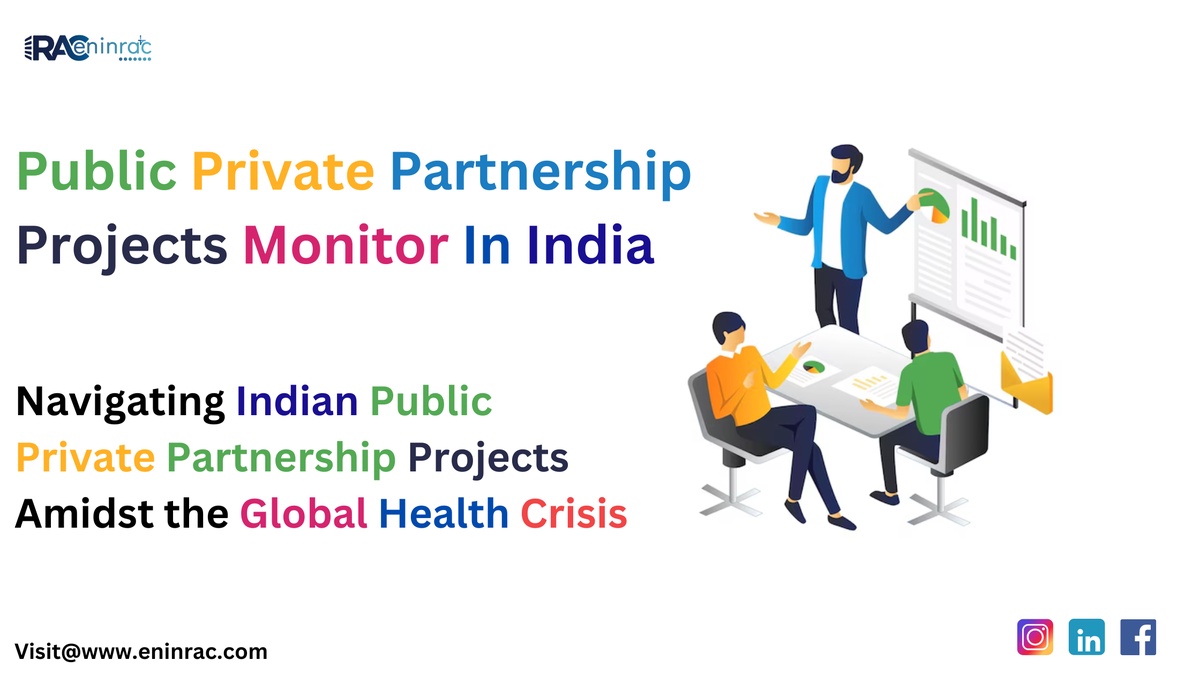Understanding the Global Health Crisis’s Impact on Indian PPP Projects
The COVID-19 pandemic has not only posed significant challenges to public health systems worldwide but has also profoundly affected various sectors of the economy, including infrastructure development. In India, where Public-Private Partnership (PPP) projects play a crucial role in infrastructure development, the pandemic’s impact has been particularly noteworthy.
Assessing the Landscape of Indian PPP Projects
Before delving into the effects of the global health crisis on Indian PPP projects, let’s first understand the landscape of these initiatives. PPP projects in India span across various sectors, including transportation, energy, healthcare, and education. These projects involve collaboration between government entities and private sector companies to develop, operate, and maintain public infrastructure.
Public Private Partnership Projects Monitor In India
In recent years, India has made significant strides in monitoring and evaluating PPP projects through various mechanisms. One such mechanism is the Public Private Partnership Projects Monitor, a platform designed to track the progress and performance of PPP projects across the country. This tool provides stakeholders with valuable insights into project implementation, financial viability, and overall impact.
The Disruption Caused by the Global Health Crisis
The onset of the global health crisis in early 2020 brought about unprecedented challenges for Indian PPP projects. Nationwide lockdowns, supply chain disruptions, labor shortages, and financial constraints severely impacted project timelines and budgets. Many ongoing projects faced delays, while several new initiatives were put on hold indefinitely.
Adapting to the New Normal: Strategies for Resilience
Despite the challenges posed by the global health crisis, Indian PPP projects have shown remarkable resilience and adaptability. To mitigate the impact of the pandemic, project stakeholders have implemented various strategies, including:
Remote Work and Digitalization: Embracing remote work practices and leveraging digital technologies have allowed project teams to continue their operations amidst lockdowns and movement restrictions.
Risk Management and Contingency Planning: Proactive risk management and contingency planning have helped project sponsors anticipate and address potential disruptions, ensuring continuity of operations.
Stakeholder Collaboration: Enhanced collaboration between government agencies, private sector partners, and other stakeholders has facilitated problem-solving and decision-making in the face of uncertainty.
Investment in Health and Safety Measures: Prioritizing the health and safety of workers and communities has been paramount. Project sponsors have invested in implementing robust health and safety protocols to mitigate the risk of COVID-19 transmission.
Looking Ahead: Opportunities and Challenges
As India continues to navigate the global health crisis and its aftermath, the future of PPP projects remains both challenging and promising. While the pandemic has underscored the importance of resilient infrastructure and effective public-private partnerships, it has also highlighted the need for greater agility, innovation, and risk management in project planning and execution.
Seizing Opportunities for Recovery and Growth
Despite the disruptions caused by the global health crisis, Indian PPP projects have the potential to drive economic recovery and sustainable growth in the post-pandemic era. By leveraging digital technologies, fostering innovation, and prioritizing inclusive development, these initiatives can play a crucial role in rebuilding communities, revitalizing industries, and creating employment opportunities.
Addressing Persistent Challenges and Risks
However, realizing this potential will require concerted efforts to address persistent challenges and risks. These include ensuring transparent governance, enhancing project transparency and accountability, improving risk allocation frameworks, and strengthening regulatory and legal frameworks.
Conclusion: Charting a Path Forward
In conclusion, while the global health crisis has posed significant challenges to Indian PPP projects, it has also presented opportunities for innovation, collaboration, and resilience. By embracing digitalization, enhancing risk management practices, and fostering stakeholder collaboration, Indian PPP projects can emerge stronger from the pandemic, contributing to the country’s sustainable development goals and improving the lives of millions.


No comments yet